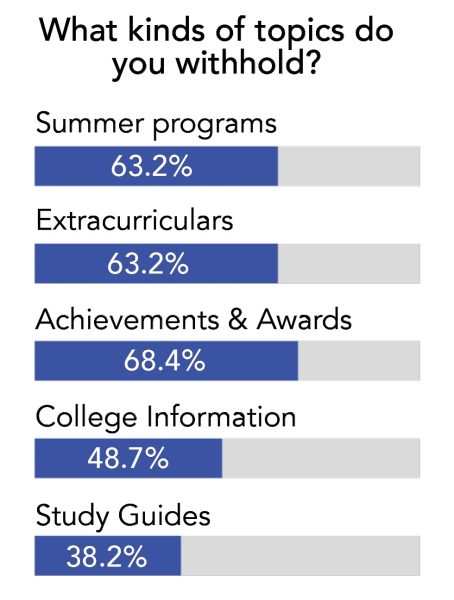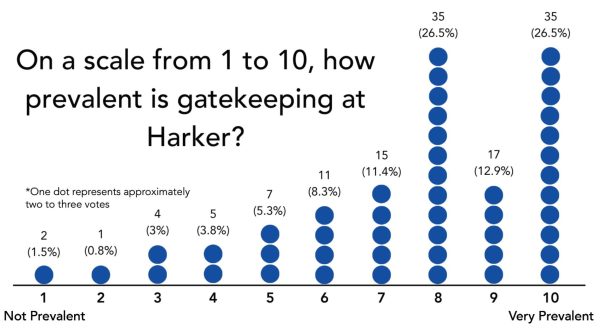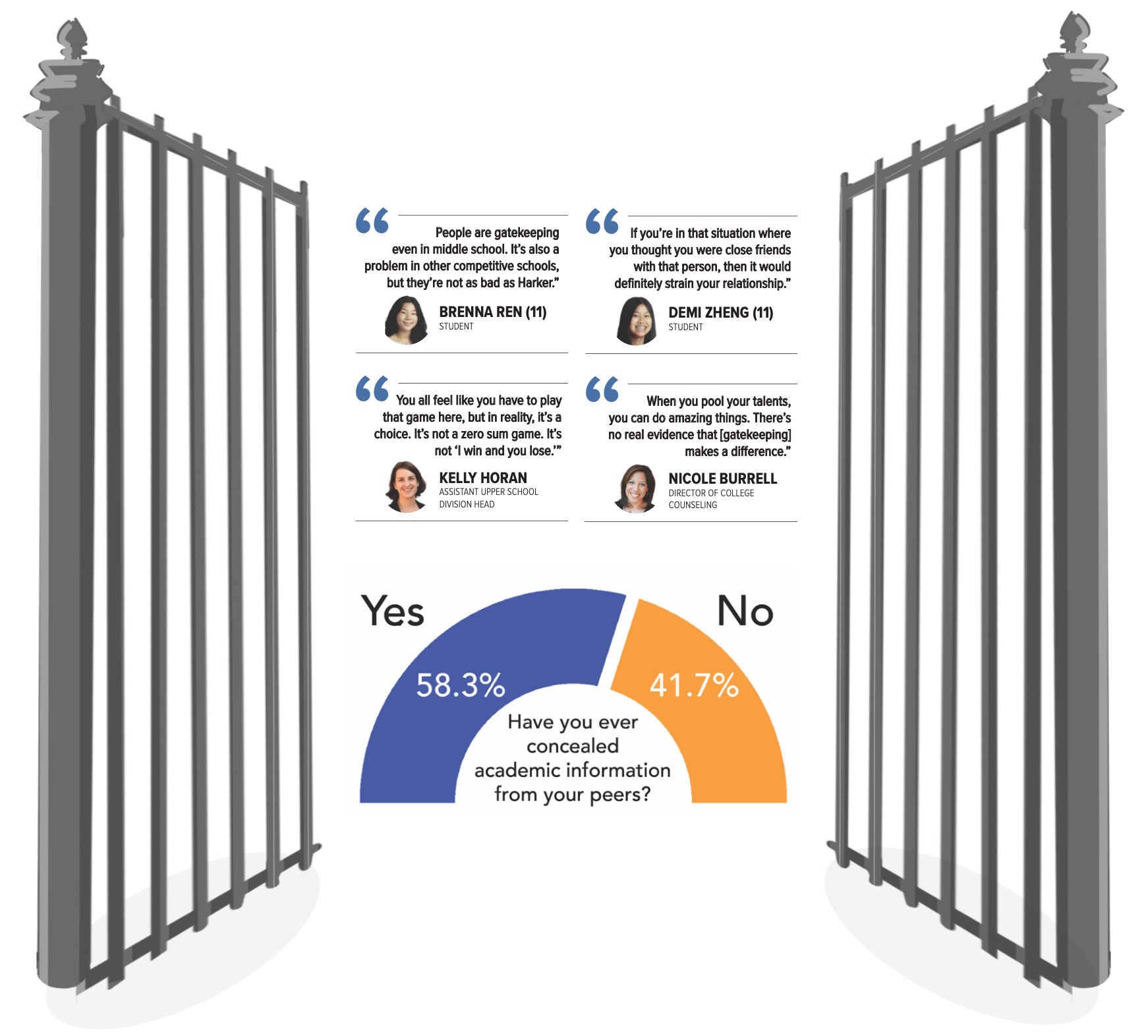Secret summer plans. Hidden nonprofits that don’t emerge until they’re featured in the news. Entire lives outside the classroom, beyond campus, that go entirely unacknowledged. Even between the closest of friends.
At Harker, withholding information, known colloquially as “gatekeeping,” is an increasingly common practice among students. In our context, the strategy involves keeping extracurricular activities low-profile so as not to attract competition from peers, typically providing only general comments or even lying when asked.
“With some people, if you ask them what they’re applying to, they’ll just say, ‘Oh, I’m applying to some programs,’ and they won’t say which ones,” Brenna Ren (11) said. “People are gatekeeping even in middle school. It’s also a problem in other competitive schools, but they’re not as bad as Harker.”
Behind the gatekeeping epidemic lies a greater web of problems. College admissions grow more and more selective each year, with acceptance rates for top schools dropping to single-digit percentages. Popular extracurricular opportunities like summer programs reflect this trend and have essentially transformed into miniature college applications, with some institutions even offering early decision options. Amidst this hyper-competitive landscape, students gatekeep opportunities in hopes of improving their chances at standing out.

“One conversation I had about it is, [students] want to do something that not everyone else is doing,” Director of College Counseling Nicole Burrell said. “They want to have one place where they can shine, especially if it’s kind of a unique or special opportunity that not everyone else is doing. They don’t want everyone else jumping on that bandwagon.”
When students feel pressured to keep certain activities a secret, they lose the opportunity to bond over shared interests with peers. The act of concealing things between friends dismantles trust, instead fostering confusion over whether peers are seen as merely competition and discouraging students from relying on each other for support.
“Finding out that your friend is deliberately gatekeeping would leave a very sour taste in your mouth,” Demi Zheng (10) said. “It makes you feel like they might not trust you, or that they’re not close enough with you to share that information. If you’re in that situation where you thought you were close friends with that person, then it would definitely strain your relationship.”
As the practice of gatekeeping becomes more common, students may feel isolated as they are constantly immersed in an environment where every acquaintance is a potential competitor rather than a potential friend. Gatekeeping fosters an academic culture where students’ hesitance to share information and discuss interests hampers curiosity and collaboration.
“Since you all think you are competing for the same thing, you do whatever you can so that other people don’t reach that,” Assistant Upper School Division Head Kelly Horan said. “You all feel like you have to play that game here, but in reality, it’s a choice. It’s not a zero sum game. It’s not ‘I win and you lose.’”
Although many students choose to gatekeep to protect their hard-earned opportunities, the practice is often unnecessary and creates an overly competitive environment. When friends aren’t even direct competitors, it’s counterproductive to treat them as rivals and withhold information.

“There’s not really a point in gatekeeping what you apply for, because you’re probably one of a thousand people who apply,” Brenna said. “In the end you’re competing with everyone else in the world, so it shouldn’t matter if your friend is competing for the same thing.”
Instead of following the instinct to protect one’s personal interests, realizing that students can still thrive by sharing and collaborating with others will create a more supportive community and a more enjoyable high school experience.
“When you guys pool your talents, you can do amazing things that uplift a bunch of people, as opposed to thinking, ‘If I keep this to myself, I can get ahead,’” Burrell said. “That mindset isn’t really good mentally for your outlook or your place in the Harker community at large. And the reality is, there’s no real evidence that it even makes a difference.”
The stress of competitive admissions may make gatekeeping seem like an intrinsic part of a college preparatory school. However, no single program or opportunity will make or break a person’s future. Through genuine collaboration, students can gain more than just acceptance letters. They can build lasting relationships and a supportive community that will outlast any application cycle.
“If you can’t fully share yourself and what you’re excited about, you’re not engaging with others in authentic ways and creating true relationships,” Horan said. “Every time we participate in the culture, we perpetuate it. So, at some point, you all have to stand up and say, ‘I don’t want to play this game anymore. Let’s just all do our best.’”





